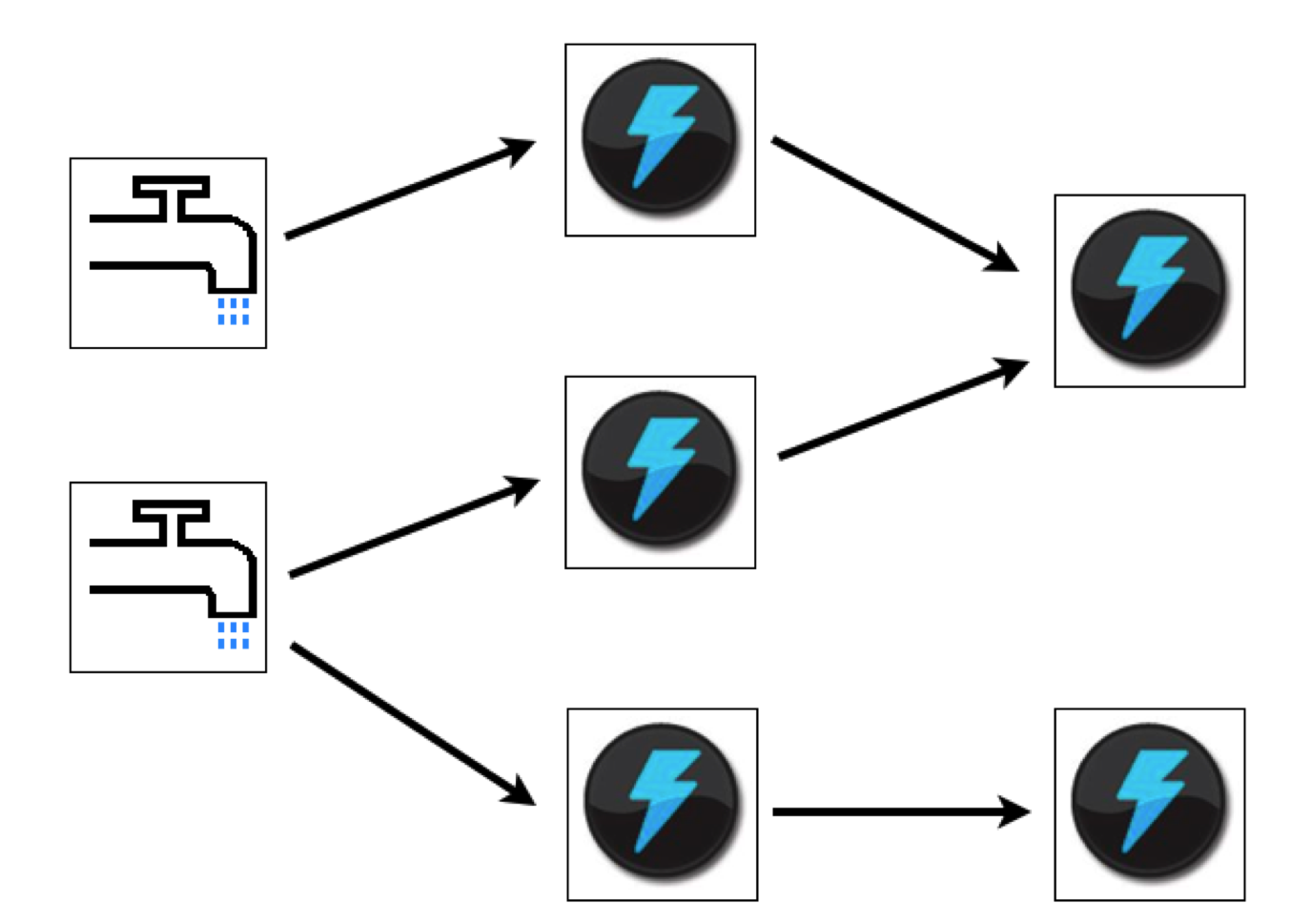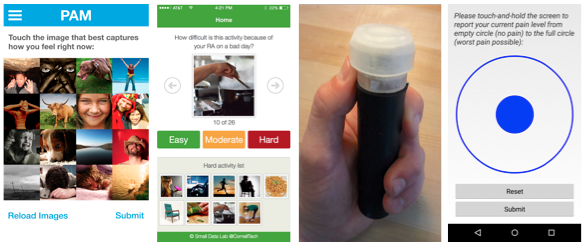Behavioral Biomarkers:
synthesizing data streams into clinically actionable measures
Mobile devices and wearables offer up continuous data from patients, but these data streams must be summarized, synthesized, and combined to create clinically meaningful measures of a patient's disease status. We are researching analytical techniques that create robust behavioral biomarkers from noisy, continuous, mobile data streams. As a starting point we defined a preliminary Mobility Index which represents multiple activity streams in a legible calendar-based output.
We have several clinical research groups, and over 50 research participants, using our current platform to conduct small scale feasibility studies.

Multi-Modal Self-Report:
engaging and expressive self-report
While passively collected data is a critical form of objective and low-user-burden measurement, self-report is still essential to understand the patient's experience of pain. New forms of multi-modal self report aim to leverage the capabilities of visually rich interfaces to minimize self-report burden while maintaining or improving the validity of the self-reported data.

We are developing methods for utilizing sensed user experience to collect richer, less obtrusive, and more accurate self-report data. We are also creating more intuitive methods for reporting pain intensity and interference.
Participatory Design:
an iterative, participatory, approach and platform for clinical engagement in technology design
We have developed an open source, end to end complete system for capturing, managing, processing and visualizing patient data called Ohmage-omh. We are using this system to engage clinicians across several specialities in a participatory design process that targets clinically useful and usable summarization of behavioral biomarker data in the context of patient care.
For example, based on initial clinician interviews, we defined a preliminary Mobility Index which represents multiple activity streams in a legible calendar-based output. In the next phase of our work these data will be integrated with self report.

Software
Ohmage-omh is a modular, open-source, open-architecture mobile health platform that is intended for rapid prototyping and piloting of mobile health applications. The system consists of downloadable applications for both Android and iOS and a secure Open mHealth compliant data store. (See Open Source on Github)
We make the software available for researchers to host their own instance of the system and described the process for contacting us to run their projects on our instance. (See Instructions for installation)
Publications
- ohmage: A General and Extensible End-to-End Participatory Sensing Platform (PDF) H. Tangmunarunkit, C. K. Hsieh, B. Longstaff, S. Nolen, J. Jenkins, C. Ketcham, J. Selsky, F. Alquaddoomi, D. George, J. Kang, Z. Khalapyan, J. Ooms, N. Ramanathan, and D. Estrin. 2015. ohmage: A General and Extensible End-to-End Participatory Sensing Platform. ACM Trans. Intell. Syst. Technol. 6, 3, Article 38 (April 2015), 21 pages. DOI=10.1145/2717318
- Small Data: Applications and Architecture, C. K. Hsieh*, F. Alquaddoomi*, F. Okeke, J. Pollak, L. Gunasekara, and D. Estrin. 2015. Small Data: Applications and Architecture (Technical report in preparation for submission)
- Phil Adams, Michael Elfenbein, Geri Gay "Supporting the self-management of chronic conditions with tailored momentary self-assessments". Under review.
- Phil Adams, Alexander T Adams, Michael Elfenbein, Geri Gay, Tanzeem Choudhury "A Tangible User Interface for the self-report of scalar values". Under review.
- Guillory J, Chang P, Henderson CR, Shengelia R, Lama S, Warmington M, Jowza M, Gay G, Reid MC: Piloting a Text Message-Based Social Support Intervention for Patients with Chronic Pain: Establishing Feasibility and Preliminary Efficacy. Clin J Pain 2015.
- Choudhury et al, Keppi submission under review, ASSETS: Conference on computers and accessibility
- Say P, Stein DM, Ancker JS, Hsieh A, Pollak JP, Estrin D. Smartphone data in rheumatoid arthritis - What do rheumatologists want? In press, Proceedings of the AMIA Annual Symposium November 2015.